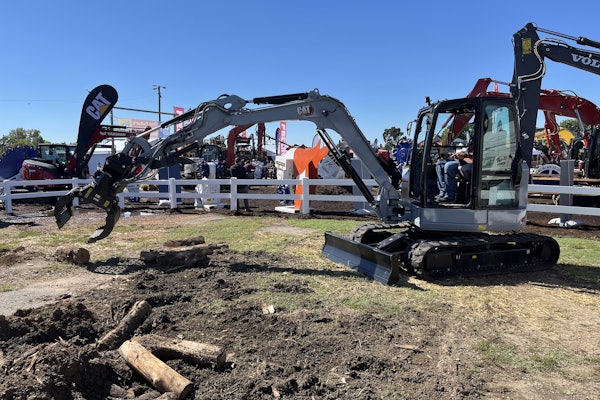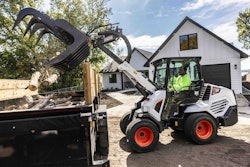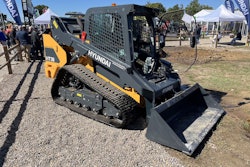In Great Britain’s New Forest, established in the 11th Century by William the Conqueror, the country’s Forestry Commission is using construction equipment not only to thin the forest, but also to help preserve it for nature enthusiasts.
The forest is so dense in places that it’s hard for tourists to enjoy the wildlife in the park. Each year approximately 7.06 million yards of timber are removed from the forest to keep hiking paths open and make wildlife more visible. To make it easier to get the timber out of the forest, and to increase hiker traffic, the commission is using Volvo G726 graders to build an extensive network of unpaved roads and tracks.
To build the tracks, workers place broken bricks as the path’s foundation and cover them with 8 inches of crushed top stone, which is then compacted. Grader operator Nigel Slocombe says the paths can fall into disrepair if not used or cleared on a regular basis.
“We try to get around all the tracks every couple of years,” Slocombe said.
The graders must operate over a range of conditions, so the machines are equipped with rippers, have all-wheel drive and 198 to 235 horsepower. The graders have five speeds below 10 mph for grading, a high-speed road maintenance gear, a snow-plowing speed, and a gear for high-speed roading.
The industrial revolution and World War I decimated Britain’s ancient forests. Pit props in the coal mines and wood for the muddy trenches of Flanders extracted an unsustainable amount of wood from the forests.
Realizing a crisis loomed, Parliament established the Forestry Commission in 1919 to protect and expand the forests and woodlands and to boost their economic value. Some 80 years later more than 2 million acres of forests have been established in the United Kingdom. Now the Forestry Commission is concentrating on increasing public understanding and community participation in forestry. This has resulted in courses such as deer watching, birdsong for beginners and family bat discovery. “We used to look at the trees,” says the commission’s Bruce Cochrane. “Now we look at the space between the trees.”
The graders create that space between the trees. Operators typically tackle stretches of 0.6 miles at a time (determined by where the grader can turn), and need seven passes to create the right surface, compaction and camber, and to clean the gullies.
The Forestry Commission is not only one of the largest operators of graders in the United Kingdom, it is also a demanding one. The commission is pushing its suppliers to provide biodegradable oils and is also investigating the use of biodiesel fuel. Even though Volvo graders can work in damp conditions, the commission discourages it because the disturbance of the path could flow into gullies, creating down-stream pollution.
Nigel Slocombe says it’s not high wages that keep him working for the commission, but rather a pride in being involved with the forests. “I like being in the woods,” he said. “I wouldn’t like being cooped up on a normal site.”










